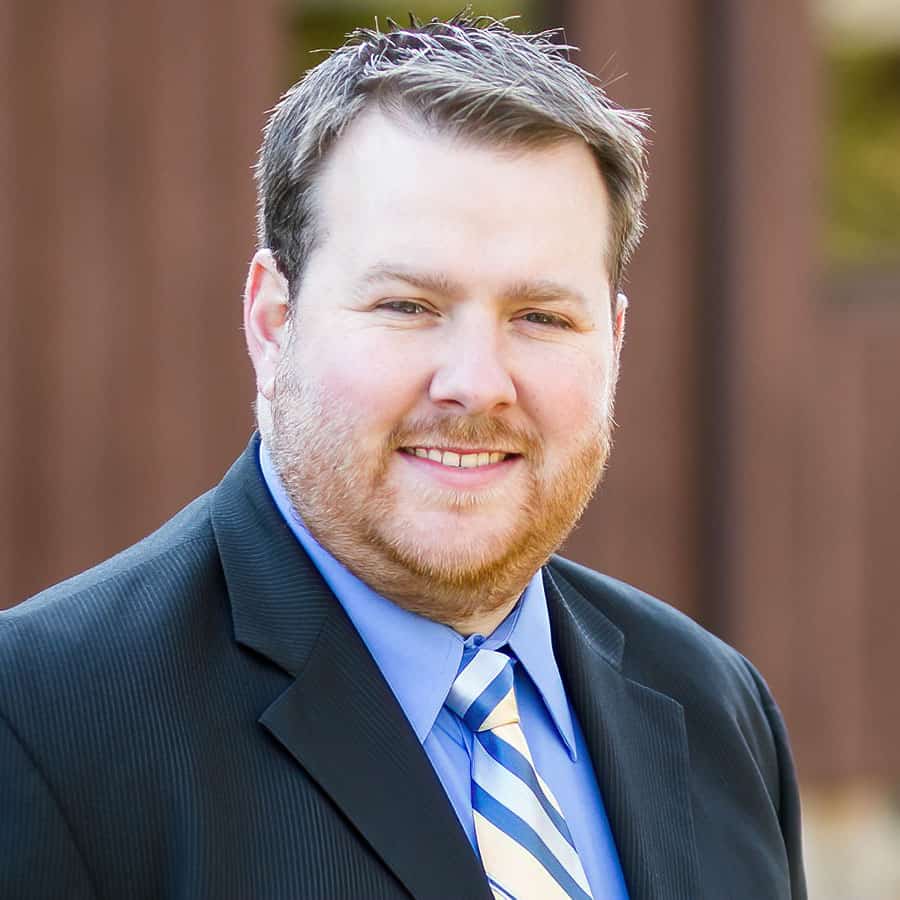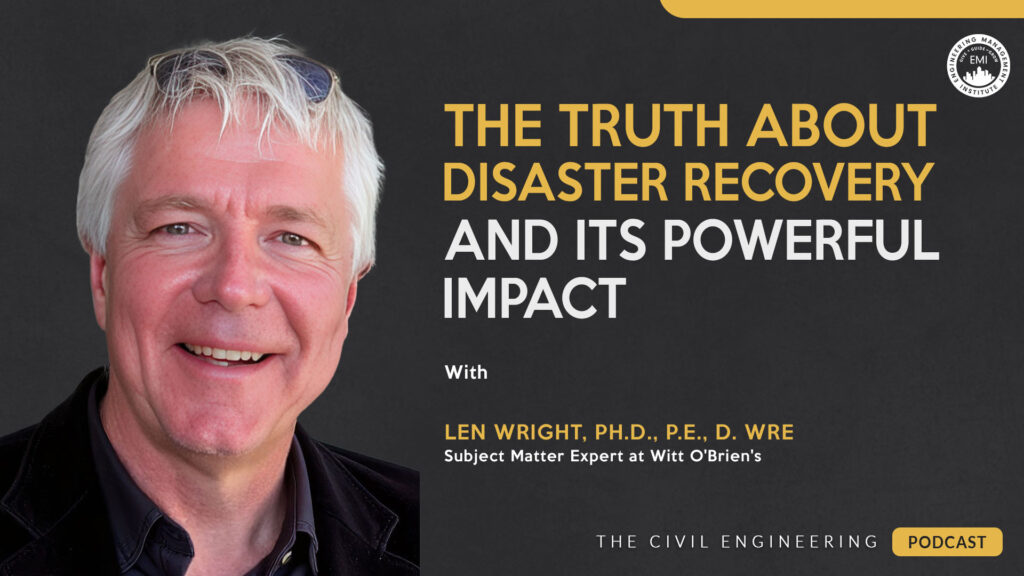In this episode, I talk with Len Wright, Ph.D., P.E., D. WRE, subject-matter expert at Witt O’Brien’s, and founder of Bluestream Innovations, LLC, about how civil engineers turn disaster recovery into opportunity, balancing immediate response with long-term resilience to build lasting, sustainable infrastructure.
***The video version of this episode can be viewed here.***
Engineering Quotes:
Here Are Some of the Questions I Asked Len:
- What role do civil engineers play in disaster recovery, and how does their work contribute to long-term resilience?
- How does building a professional network outside of engineering benefit civil engineers in their careers and projects?
- What role do civil engineers play in helping governments manage and maintain the infrastructure they build?
- How can engineering managers create strong technical teams that incorporate empathy, understanding, and creativity?
- What key aspects should engineers understand about funding sources for capital projects like those provided by FEMA and the EPA?
- How can civil engineers simplify complex technical data to effectively communicate with policymakers and decision-makers?
- What are the biggest challenges in aligning disaster recovery efforts with long-term infrastructure resilience?
- What final piece of advice would you give to engineers looking to make a greater impact in disaster recovery and infrastructure management?
Here Are Some Key Points Discussed in This Episode About The Truth About Disaster Recovery and Its Powerful Impact:
- Civil engineers play a critical role in disaster recovery by designing and rebuilding infrastructure that withstands future challenges. Through collaboration across disciplines and the application of lessons from past disasters, they create integrated solutions that improve long-term sustainability.
- Expanding professional connections beyond engineering opens unexpected career opportunities and strengthens problem-solving approaches. A strong network enables engineers to work across disciplines, gain access to diverse projects, and contribute to impactful solutions in disaster recovery and infrastructure development.
- Governments rely on civil engineers to manage and maintain infrastructure that supports communities and economies. By clearly communicating the value of infrastructure investments, engineers help decision-makers allocate resources effectively and plan for long-term sustainability.
- Effective engineering managers ensure their teams understand how their work contributes to larger goals, increasing engagement and efficiency. By promoting clear communication and collaboration, they create environments where technical professionals align their expertise with strategic objectives.
- Understanding funding sources requires engineers to present technical solutions in a way that aligns with program objectives and community needs. Clear and compelling communication ensures that projects secure necessary funding and meet both regulatory and long-term resilience goals.
- Civil engineers must translate technical data into clear and actionable insights that policymakers can understand and use. By balancing expertise with effective storytelling, they ensure that critical infrastructure projects receive the support and funding needed for successful implementation.
- Aligning disaster recovery with long-term resilience requires engineers to step beyond traditional approaches and work within dynamic, multidisciplinary environments. By adapting to evolving priorities and integrating innovative solutions, they bridge the gap between immediate recovery and sustainable infrastructure development.
- Expanding expertise beyond traditional engineering disciplines strengthens an engineer’s ability to address complex recovery challenges. Those who embrace diverse perspectives and step outside their comfort zones contribute to more effective and lasting disaster recovery efforts.
More Details in This Episode…
About Len Wright, Ph.D., P.E., D. WRE

With extensive expertise in planning and managing wet infrastructure, he focuses on simulation-based decision support strategies, risk mitigation, and addressing the impacts of climate change on civil infrastructure, particularly fresh water supplies and demands.
In addition to his work at Witt O’Brien’s, Dr. Wright provides independent consulting services, including conducting a detailed stormwater management analysis for a major urban college in the Northeast. His contributions continue to advance the resilience and sustainability of water resources and infrastructure systems.
About the Host: K. James Taylor, Jr., P.E.

James was selected as the 2021 Young Engineer of the Year by the American Society of Civil Engineers (ASCE) Delaware Section and served as the President of the Delaware Engineering Society and the New Professionals Director on the NSPE Board of Directors from 2021-2023.
Sources/References:
Witt O’Brien’s
Natural Hazards Center
World Bank
FEMA
EPA
Stafford Act
Sulzer Group
Connect with Len Wright, Ph.D., P.E., D. WRE, on LinkedIn
Please leave your comments, feedback, or questions in the section below.








